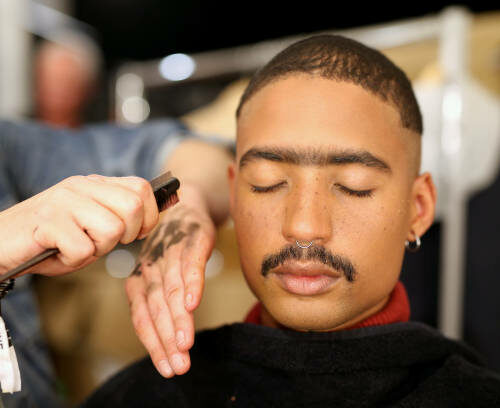
South Africa is home to many diverse cultures and different backgrounds, hence the term “rainbow nation.”
Although the nation is colorful through its diversity, it can sometimes create a barrier amongst people and make it difficult to navigate across provinces without knowing the basic language or to even greet.
In most cultures in South Africa, greeting is the most courteous thing that people respond to, it shows respect for people’s cultures and interest in knowing their language.
Lead With Languages says that in today’s increasingly interconnected and interdependent world, proficiency in other languages is a vital skill that gives you the opportunity to engage with the world in a more immediate and meaningful way.
You can connect, gain perspective and create friendships.
We all have to start somewhere, according to Travel Guide here are some basic greetings in official 11 languages:
isiZulu
11.5 million speakers. Predominantly spoken in KwaZulu-Natal, Zulu is understood by at least 50% of South Africans.
Hello! – Sawubona! (to one) / Sanibona! (to many)
How are you? – Unjani?
I’m fine, thanks. – Ngikhona, ngiyabonga.
isiXhosa
8.1 million speakers. The Xhosa originated from the Eastern Cape region and have a complex language characterised by clicking sounds, denoted by “c”, “x”, and “q”.
Hello! – Molo (to one) / Molweni (to many)
How are you? – Unjani? (to one) / Kunjani? (to many)
I’m fine – Ndiphilile
Nice to meet you – Ndiyavuya ukukwazi
Thank you – Ndiyabulela
Afrikaans
6.8 million speakers. Arguably the youngest language in the world (recognised as an official language in 1925), Afrikaans is the second most spoken language in South Africa. The language evolved from Dutch, French, Malay, Khoi Khoi, and other influences.
Hello! – Haai! / Hallo!
How are you? – Hoe gaan dit met jou/u?
I’m fine, thanks – Goed, dankie
Nice to meet you –Aangename kennis
Sepedi
4.6 million speakers. Also referred to as Northern Sotho, Sepedi is the language of the Pedi people of Mpumalanga and Limpopo.
Hello – Dumela (to one) / Dumelang (to many)
How are you – O kae? (to one) / Le Kae? (to many)
I’m fine – Ke gonaThank you – Ke a leboga
Setswana
4 million speakers. The Batswana people are predominantly from the north western regions of South Africa.
Hello – Dumela
How are you – O tsogile jang? Le kae? (to one) / Le tsogile jang? (to many)
I’m fine, thanks – Ke tsogile sentle / Re teng
Nice to meet you – Ke itumelela go goitsi
Sesotho
3.8 million speakers. Sesotho originated from the Mountain Kingdom of Lesotho and is often referred to as Southern Sotho.
Hello – Dumela (to one) / Dumelang (to many)
How are you – O kae?
I’m fine – Ke tengYou’re welcome – O amohetswe
Xitsonga
2.3 million speakers. Xitsonga is spoken by the Batsonga people (also called the Shangaans) in the Limpopo Lowveld.
Hello – Avuxeni
How are you – Ku njhani?
Thank you –Ndzi khense ngopfu
siSwati
1.3 million speakers. Originating in Swaziland, siSwati is spoken by a third of the people of Mpumalanga.
Hello – Sawubona
How are you – Unjani?
I’m fine – NgikhonaThank you – Ngiyabonga
Tshivenda
1.2 million speakers. Tshivenda is the language of the Venda people in the Mapungubwe area of Limpopo. The Venda are culturally closer to the Shona people of Zimbabwe than any other South African group.
Hello – Ndaa/Aa
How are you – Vho vuwa hani?
Thank you – Ndi a livhuwa
isiNdebele
1 million speakers. The Ndebele people live mainly in Limpopo and Mpumalanga, but can also be found throughout Gauteng.
Hello – Lotjhani / Salibonani
How are you – Unjani (to one) / Linjani (to many)
I’m fine – Ngikhona / Sikhona
Nice to meet you – Kuhle ukukubona
Thank you – Ngiyabonga
To build a better South Africa, former SA President, Thabo Mbeki said “Africa belongs to everyone who lives in it”. therefore, learning about other South African languages builds unity amongst different ethnicities.




